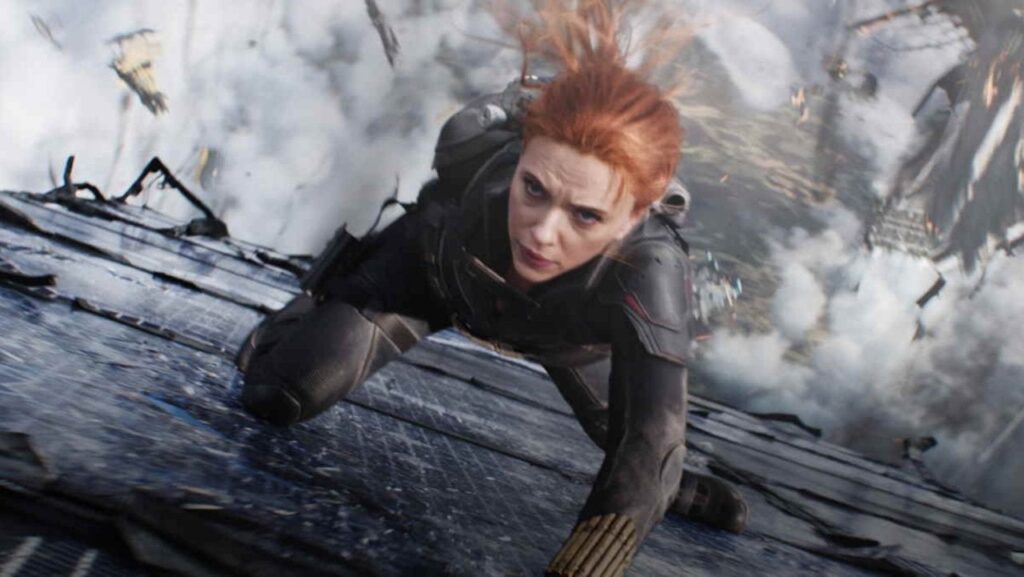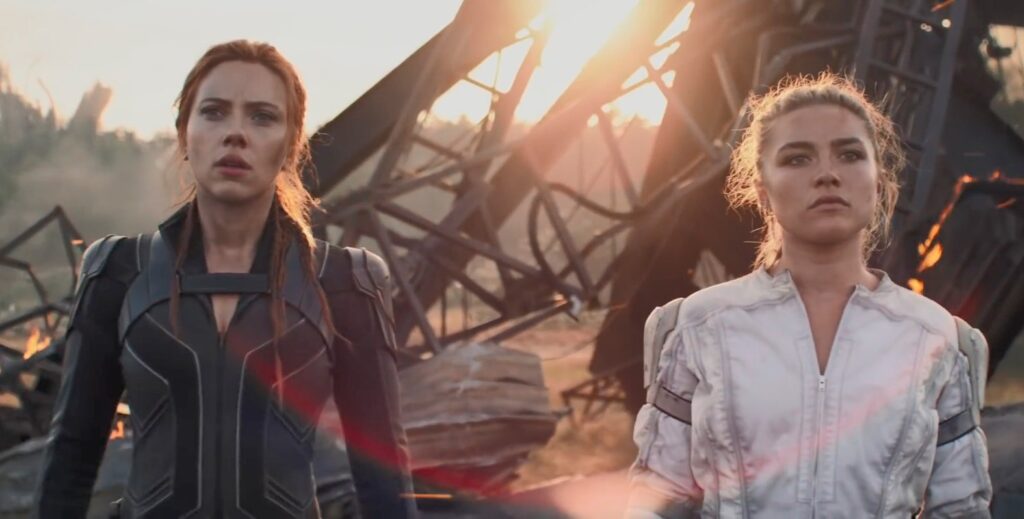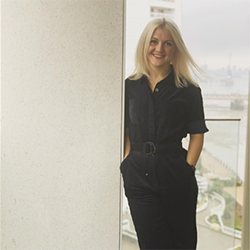Unlike DC, Marvel’s chaotic comic book cousin, the films of the MCU follow a meticulous Phase Plan. To ensure all films build together to one cohesive end or ‘phase’ each film is set along the same timeline and have plot points relevant to the overarching plot of the phase. Conceivably a poorly concealed money grab, the intricacies of planning and sheer scale are nevertheless very impressive. Black Widow is set to herald in the fourth phase of the MCU, sitting on the timeline just after Avengers Civil War.
Like many origin stories, we start with Black Widow aka Natasha Romanoff aka Scarlett Johansen as a child, introducing us to her seemingly all-American suburban family. But all is not as it seems and we soon discover she is in fact part of a Russian sleeper family. Accomplishing their mission, Natasha is taken from the USA and absorbed into Dreykov’s army of Widows, before ultimately defecting to S.H.E.I.L.D. We join Natasha, as she flees the USA again (for reasons outlined in Civil War) to find some peace and quiet in Norway.

Many people will love this film. Comic fans will delight with how it nods to side characters that haven’t yet made it to screen, whilst there are also enough fight scenes to keep action fans glued to their seats. The cast is just as eccentric as other MCU films, with Ray Winston and Julia Louis-Dreyfus making their way onto the roster. Along with some wonderful comic moments from David Harbour.
More than that, this film sets out to give credence to the hints that Black Widow is one of the more complex Avengers. Cate Shortland (director) clearly makes the film a deeper character study of Natasha and her family as a whole – and we spend a lot of time in the film exploring their complex dynamic. We see she isn’t an out-and-out ‘hero’, like Captain America, nor a literal God like Thor. She is a person, with a complex family dynamic and a problematic past. Though this detracts from the number of laughs, it also makes Black Widow grittier than its brothers. As Melina Vostokoff (Weisz) says in the film, ‘the pain only makes you stronger’, the idea that through facing adversity we can become stronger and better to me signifies a more mature storyline than simply asking that our heroes descend from the stars to reclaim a birth right. Black Widow became who she is today by finding her strength – it was not bequeathed to her by anyone. To me, this is the true feminist core of the film and the reason I enjoyed it.

However, Shortland at times gets carried away by the message she wants to present and, much like in Captain Marvel, I sometimes felt that the feminist notes were hit so hard that they overbalanced several moments in the film. For example, upon Alexei (Harbour) asking if Yelena (Pugh) is ‘on her period’ – Yelena responds by explaining that she can’t have periods because she was forcibly given a hysterectomy. As a scene that was meant to fall into the ‘witty banter’ section of the film this fell flat as well as trivialising the real-life struggle of Russia’s Red Sparrows, the female spies that Black Widow is based on. It’s not feminism if the point made undercuts the themes that the film is trying to promote. This point wasn’t aided by DOP Gabriel Beristain, who decided that all wide-angle shots should be placed at hip height so we never miss a shot of Johansson’s bottom.
Ultimately, I felt Marvel has made further steps towards creating a more balanced MCU. But with such great female characters in Guardians and Thor, I would love to get to the stage where the lead in a female franchise can be strong and funny, as opposed to merely being a vehicle for socio-political gravitas. True equality comes when we no longer have to make a distinct point that we should be treated equally and Black Widow, by accident or purpose, shows we still have a little way to go.
By Ella Spottiswood

Ella is a Freelance Director/Producer and the co-founder of Soldi Films. When she isn’t making, watching or talking about films, she is writing about them here!
